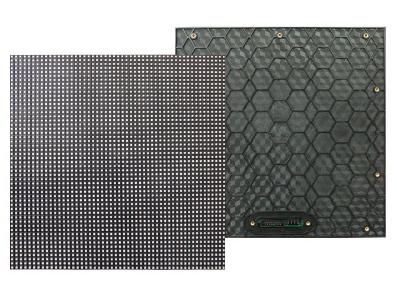source:other news release time:2023-08-18 Hits: Popular:led screen wholesaler

For more complex applications, RGB can be combined with different intensities to produce up to 16 million colors. A reliable method to achieve this is to apply a Pulse Width Modulation (PWM) signal to each LED, where the duty cycle corresponds to the intensity. The human eye can recognize flickering frequencies of 200 Hz or slower, therefore, to avoid flickering, a PWM frequency of 1000Hz or faster should be used. Colors can be easily selected through RGB color codes. This is based on the RGB additive color model, where red, green, and blue light have different intensities and can be combined to regenerate almost any color. This model is suitable for light and serves as the basis for color reproduction in television and display screens. It can also be used to present colors on web pages. The abbreviation for RGB color code is represented by (R, G, B), where R, G, and B are decimal values of red, green, and blue intensity, ranging from 0 to 255. For example, the decimal RGB color code for blue is (0, 0255), purple is (128, 0128), and silver is (192192192). When determining the PWM duty cycle for each color, these values need to be divided by 255, so the duty cycle for blue is (0, 0100%), the duty cycle for purple is (50%, 0, 50%), and the duty cycle for silver is (75%, 75%, 75%). In theory, white light is represented by (255255255) and can be generated by simultaneously turning on full intensity red, green, and blue LEDs. However, in practice, the color generated through this method is usually white with a bluish hue. This color tone occurs because the generated LED colors do not fully match the precise wavelengths of ideal red, green, and blue.
Read recommendations:
indoor led display screen maker
P4 indoor LED module.Analyzing the Characteristics of LED Lamp Pole Screen from the User's Perspecti